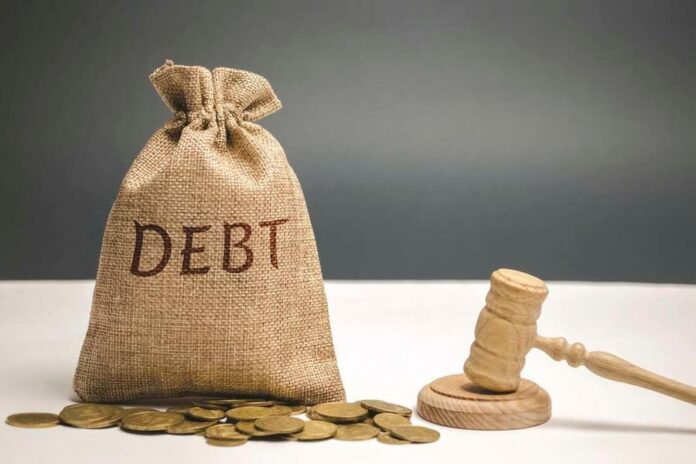The Debt Management Office (DMO) says Nigeria’s debt remains sustainable, in spite of the country’s seeming huge debt stock.
The Director-General of DMO, Mrs Patience Oniha, said on Monday in Abuja said that there was urgent need to boost the country’s revenue to further ameliorate the debt burden.
She suggested an efficient tax administration that would ensure greater compliance to remittances, and devoid of all forms of evasions in the system.
According to her, most countries place more emphasis on taxation as a principal source of funding for the government.
She advised that new borrowings should be tied to projects that would generate commensurate revenues to service loans used to finance them.
She also said that physical assets such as idle or under-utilised properties could be redeveloped for commercialisation to generate revenue.
According to Oniha, the current revenue problem is compounded by leakages like oil theft and petrol subsidy.
“These have significantly reduced the revenue from crude oil sales that used to account for the bulk of government revenue,” she said.
She said that the outlooks of both the local and international markets were becoming tighter with rising interest rate.
She called for moderation in new borrowings and accelerated revenue growth to shore up non-oil revenue.
She, however, said that the country’s total public debt-to-Gross Domestic Product (GDP) ratio was still within reasonable limits.
“At 23.06 per cent, the debt-to-GDP ratio is still within Nigeria’s self-imposed limit of 40 per cent.
“It is also within the World Bank/International Monetary Fund (IMF) recommended limit of 55 per cent for countries within Nigeria’s peer group and 70 per cent for ECOWAS countries,” she said.
She said that debt service-to-revenue was high, adding that urgent steps needed to be taken to boost revenue and further enhance public debt sustainability.
“Nigeria’s public debt stock has grown consistently over the past decades and even faster in recent years, and debt service has continued to grow.
“The country’s low revenue base compounded by dependence on crude oil receipts resulted in budget deficits over the past decades.
“Efforts at increasing non-oil revenue are, however, yielding positive results,” she said.
According to her, with a low debt-to-GDP ratio, the debt service-to-revenue ratio would have been low if revenue were strong.
She said that Nigeria was deploying debt management tools of the World Bank and IMF to ensure debt sustainability.
“These tools include an annual Debt Sustainability Analysis (DSA) and a Medium Term Debt Management Strategy (MTDS) every four years,” she said.
Oniha listed other initiatives to ensure debt sustainability as the Presidential Infrastructure Development Fund (PIDF), Infrastructure for Tax Credit, Infrastructure Corporation of Nigeria Limited (InfraCorp) and Off Balance Sheet Financing.
“The PIDF is managed by the Nigeria Sovereign Investment Authority (NSIA). The fund is to be invested in critical road and power projects across the country.
“The Infrastructure for Tax Credit initiative encourages companies to commit their resources to the construction of new roads or rehabilitating old ones with the assurance that such expended resources would be recouped from company tax.
“InfraCorp is a Public Private Partnership promoted by the Central Bank of Nigeria (CBN), Africa Finance Corporation (AFC) and NSIA, to catalyse and accelerate investment in Nigeria’s Infrastructure sector.
“InfraCorp has a seed funding of One trillion Naira as equity from the promoters,” she said.




